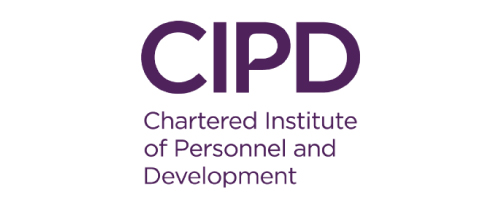
Payroll and HR in Malta
The International HR & Payroll Company
That Speaks Your Language
At IRIS FMP, we have the expertise to simplify Maltese payroll and HR. Helping businesses and their overseas employees thrive, we have been recognised as global payroll and HR specialists capable of supporting your growing organization.
Navigating the intricacies of global payroll and HR in Malta is not immediately simple. Compliance is almost always a high priority for international businesses, where we can support you during a global expansion with any HR or payroll challenges. Regardless of differing laws, cultures and regulations, we can help you overcome anything delaying your growth. Fortunately, our experts can help you. We offer:
Looking for Payroll and HR Services?
Payroll in Malta
We take away the complications of global payroll and manage everything for you – this includes local pay to benefits, and more. Through our payroll support, your growing workforce will be paid accurately, on-time, every time.
HR in Malta
Companies use our HR solutions to support their global employees with matters of legislation and compliance.
Maltese Employment Law Compliance
Onboard your organization’s talent in no time, and focus on compliance. As an in-country expert, we cover contracts, policies, handbooks and more.
Global Payments Services
We are able to provide compliant, global payment solutions that help your cross-border transfers become more cost-effective.
Jump to section
Location Data
- Name
Malta
- Region
- Europe (Southern Europe)
- Population
- 525285
- Calling Code
- 356
- Capital
- Valletta
- Timezone(s)
- UTC+01:00
- Currency
- Euro (EUR)
$1 = €0.92 - Main Language
- Maltese(Malti)
- Other Business Languages
- English, Maltese
- Tax Year Start
- 1st January
- Tax Year Start
- 31st December
Details correct at time of publication. You should not rely on these details without first seeking professional international advice.
A trusted advisor for global expansion
We support businesses in 135 countries worldwide to reach their expansion goals.
Global Expansion in Malta
Despite its small size of just 316km², Malta has been able to prosper significantly over the years when it comes to business. Historically, this is in part due to its strategic location in the Mediterranean Sea; during the Napoleonic Wars particularly, Malta was a hub for trade between Italy and Egypt. Today, Malta’s Port of Valletta is busy with both commercial and cruise ships, and Malta International Airport offers flights to destinations all over Europe.
Any business owners considering expansion to Malta must first familiarise themselves with local employment law. It’s imperative to understand legislation surrounding corporate and income tax, as well as HR considerations such as sick pay and holiday allowance.
With a team of experts here at IRIS FMP, we are well-versed in international HR and payroll law. We can offer help and advice on a wide array of matters in this field, guaranteeing you remain complaint with Maltese law.

Employer Must-Dos
In Malta, the following must be submitted by employers;
- Tax and social security deductions for employees
- Corporate Tax Return
- An Annual Return on the anniversary of company’s registration in Malta (if applicable)
Payroll in Malta
What tax considerations are there?
Personal Income Tax
Everyone living in Malta is taxed on their worldwide income, as long as this income is received in Malta. Any non-residents in Malta are taxed only on income deriving from Malta. The rate of tax depends on income, marital status and parenthood. Single residents earning less than €9,100 annually, married residents earning less than €12,700, and parents earning less than €10,500 are all exempt. After this, the starting tax rate is 15%, the next bracket is 25%, and the maximum tax is 35%. In all cases, salaries over €60,000 are taxed at 35%.
Individuals must submit tax returns annually, by the end of June in the following calendar year. In the case of married couples, one spouse must take responsibility of the joint tax return, by registering as the taxpayer. This registration lasts for five years. Tax and social security payments for individuals should be withheld by employers from staff salaries.
Corporate Income Tax
A company that has been incorporated in Malta is taxable on a worldwide basis however a foreign company in Malta is only taxable on income from within Malta. There is a flat rate of 35% tax.
Although the official financial year in Malta runs from January 1st to December 31st, companies can make a request with Maltese Inland Revenue to use an alternative Year End if preferred. Tax returns for companies must be filed by March 31st following the assessment year, or nine months after the end of the financial year – whichever is later.
HR in Malta
What are the regular working hours in Malta?
The average working week in Malta is 40 hours, and the legal limit is 48 hours – however the extra eight are considered overtime and must be paid as such. Office hours are usually 8am to 5pm or 8.30am to 5.30pm.
Vacation, maternity and sickness
There are 14 public holiday days in Malta during which employees are entitled to full pay, and are not expected to work. As well as this, the lawful holiday allowance is 26 working days for anyone working a 40 hour week.
Pregnant employees are entitled to 18 weeks (126 days) of maternity leave, 6 weeks (42days) of which are compulsory. Employers must pay the employee’s full salary for the first 14 weeks of maternity leave, and then the remaining four weeks are paid for by the government at a rate of €175.84 per week.
Full time employees in Malta are allowed up to 20 days of sick leave on full pay. The first three days are paid in full by the employer, and the remaining days are paid by the employer at a rate of their full salary minus their sickness benefit entitlement under the Social Security Act.
Termination
Should either party wish to terminate the employment contract, due notice must be given. This differs depending on the employee’s length of service;
- < 6 month: 1 week
- 6 months – 2 years: 2 weeks
- 2-4 years: 4 weeks
- 4-7 years: 8 weeks
- > 7 years: 8 weeks + 1 week for every additional year, up to 12 weeks.
Longer notice periods may be agreed upon in the case of certain roles. According to law, severance pay does not need to be paid.

Learn about payroll administration across the world.
To understand more about the various aspects of payroll internationally, take a look at our useful guide. Here we examine everything from maternity and sick pay to income tax.
IRIS FMP’s Maltese Payroll and HR Solutions
Business owners who want to branch out to Valletta, Sliema, Gzira or another of Malta’s cities have much to consider in their expansion plans. To avoid additional, unneeded stress in an already demanding period of business, get in touch with our experts at IRIS FMP. With a long history in international employment law, we help ensure that you remain compliant with Malta’s HR and payroll legislation. Among our services are the following;
- Payroll processes
- Online payslips
- Employee tax deductions
- Sickness, Maternity, and Holiday pay
- Payroll audits
- HR Consultation
- Translation services
- Pension administration
- Multi-currency payroll
- HR Procedure implementations
- Year End tax reconciliation

Get in touch with IRIS FMP for help expanding to Malta
Avoid frustrations and confusion while navigating Maltese employment law by reaching out to the experts. At IRIS FMP, we can help make your expansion pain-free and entirely compliant.





















